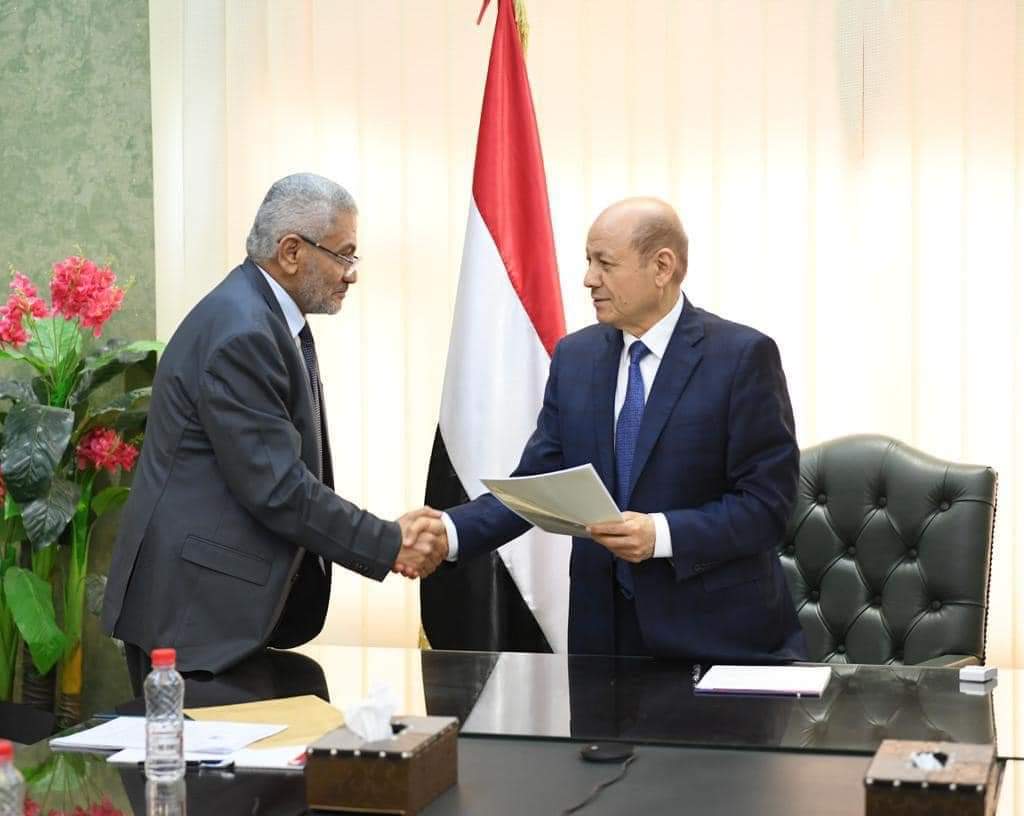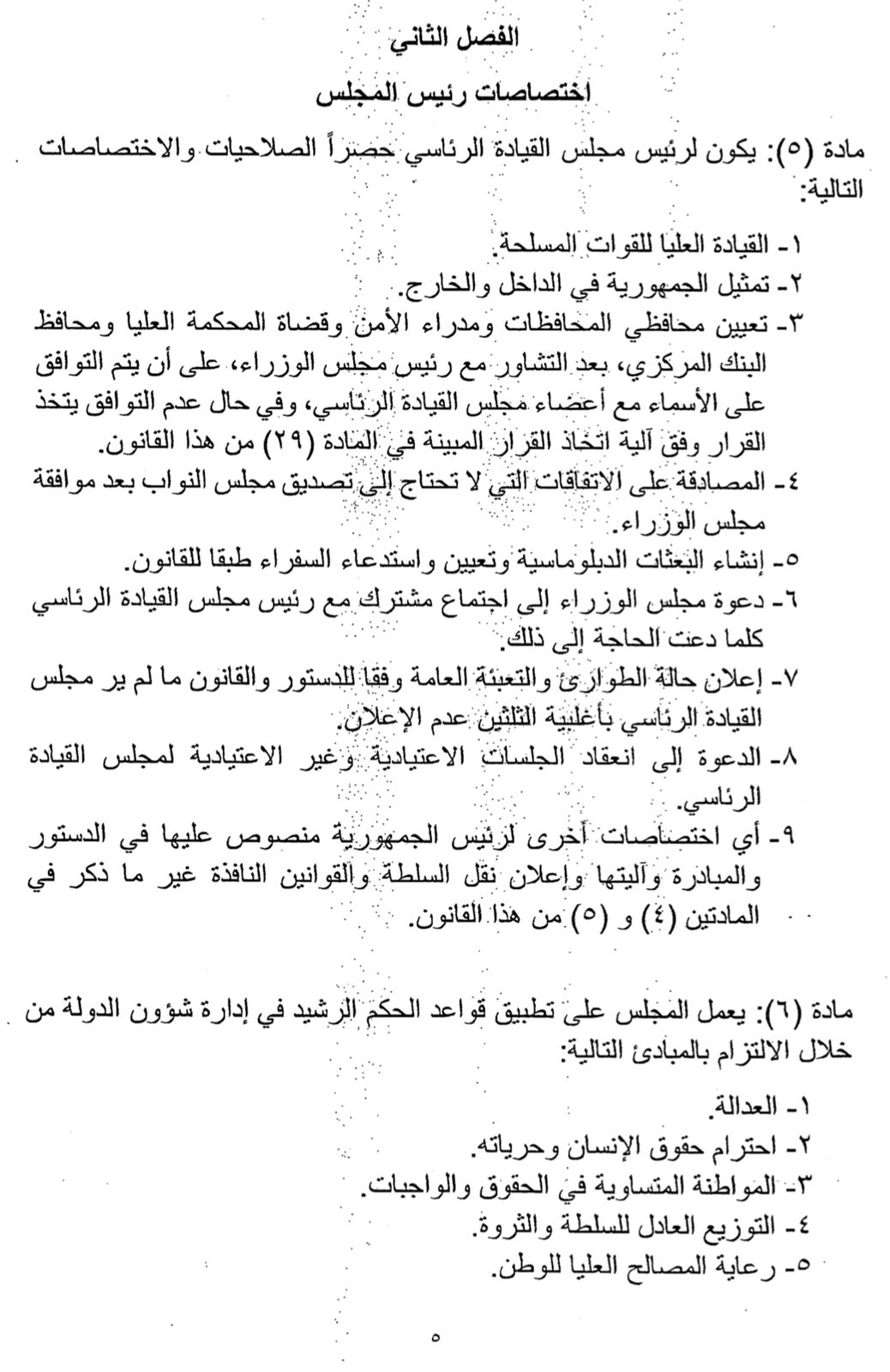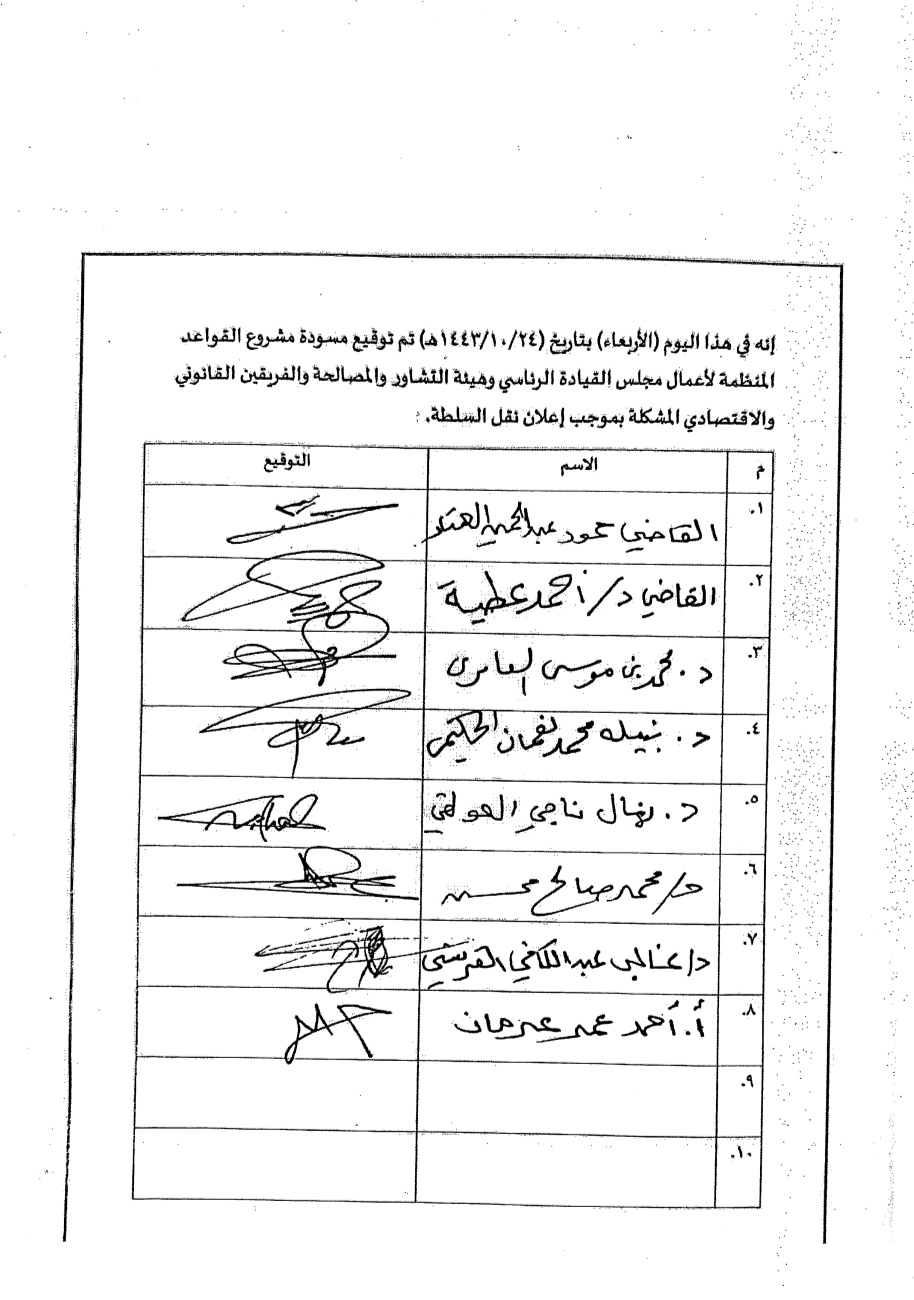
Rashad Al-Alimi receives a regulation draft to organizes the PLC's work (Saba)
Last updated on: 15-06-2022 at 6 PM Aden Time

Abdullah Al-Shadli (South24)
On May 31st, Rashad Al-Alimi, the Chairman of the Presidential Leadership Council (PLC) received a regulation draft prepared by the legal team which was established along with the PLC. The draft organizes the PLC's work as well as the legal and the economic teams. The draft, prepared by the legal team led by the senior Muslim Brotherhood (MB) official Hamoud al-Hitar, has been met with wide refusal and doubtness by Southern political leaders and journalists affiliated with the STC. Likewise, many Northern politicians and activists criticized it.
The draft has been accused of attempting to launch a coup against the outputs of the Riyadh Consultations and the PLC and giving Rashad Al-Alimi powers that transgress his assumed role. 
Rashad Al-Alimi's powers in the draft (copy obtained by "South24")
One of the controversial articles is depriving the PLC's members from holding any executive military positions. It is known that the Southern leaders in the PLC including Al-Zubaidi, Al-Muharami and Al-Bahsani are the ones who hold these jobs.
Article (16) of the Draft stipulates that "the PLC's Chairman and Members should not combine their positions in the PLC with any executive civil or military activity. Article (3) of the Presidential Declaration, issued on April 7th by former Yemeni President, Abdrabbuh Mansur Hadi calls for the establishment of a legal team to formulate a regulation draft that organizes the work of the PLC, the consultation and reconciliation body as well as the legal and the economic teams.
The STC has not so far officially announced its refusal for this draft. However, the Supreme Economic Committee, affiliated with it said on Monday that "the draft alienated the Southern issue and does not express the outputs of the Riyadh Consultations" [1].
Lawyer Yahia Ghaleb Al-Shuaibi, a member of the negotiation council in the Riyadh Agreement tweeted that "the draft produces a smell of exploding conflict and crisis". He added: "This reminds me of the legal committee which didn't merge and was the cause behind the outbreak of the 1994 war and the attempt to assassinate the Southern Justice Minister in Sanaa" [2].
Al-Shuaibi told "South24" that "the circumstances in which the legal team was established were urgent in a way that restricted the PLC itself from expressing its view about the formation of the legal team although the latter just assists the PLC".
He added: "Former President Hadi was supposed to only transfer the power which he practiced and inherited it from his predecessor Saleh but he added bodies with legislative powers such as the legal team or executive powers such as the consultation, the economic and the military bodies".
He elaborated: "The establishment of the aforementioned bodies was not among Hadi's constitutional power but he established and imposed them with his power transfer decision on the eve of handing over his power. Thus, Hadi didn't transfer his power but he leapfrogged this authority by the establishment of the new bodies out of his power. Those bodies have been associated with the power transfer decision which created the ongoing confusion".
Al-Shuaibi noted that: "since the role of these bodies is to assist the PLC, the latter is the one which has the right to reconsider them in light of the interests of the stage and the PLC's tasks".
However, Lawyer Ahmed Erman, the legal team's member told "South24" that "the initial draft presented by the legal team is not its final form".
He added: "It is natural that it will be subjected to discussions which reflect the keenness and the awareness by the concerned parties or interested legal figures and others about the importance and seriousness of the stage".
Erman believes that "criticizing the draft is not a shame for the legal team and doesn't mean it has flaws. It is good, especially during this period, for the draft to be under discussion at all public and private levels".
He added: "This would produce a legal document that arranges for a road map to the situation in Yemen during the incoming phase. There is a need for that regardless of the level of praise and criticism of what was included in the draft. It is important to take sufficient due discussions, modifications and remarks".
Erman believes "it is also important that the draft will lead to a form which meets the expectations of all parties, securing guarantees as well as building trust and rules that would pave the way for a future stage based on partnership, transparency and integrity".
The signatures of the legal team's members on the draft (copy obtained by "South24")
The Legal Team's agenda
Political analyst Saeed Bakran believes that the real problem is not that the Head and most members of the legal team are from North Yemen but it is represented in its ideological backgrounds and agendas".
Bakran told "South24" that "there is no problem for the legal team to be from North or South. The real problem is that 5 of the 8 members are not just MB members but they are leaders in the MB organization and the Sururi movement in Yemen".
He added: Those leaders have international ties and don't have a national project. Furthermore, they are not specialized in drafting constitutions".
"This deceitful game is unacceptable. It includes diversifying the MB's factions and renaming them in the forms of different political forces and parties while they are in fact one group" he added.
Bakran said that "this document expresses the Islah Party aspirations to seize the reality and transform the PLC into a tool to implement the organization's agendas. The failure to admit reality is what caused the problems in the liberated areas and the clashes".
He added: "This committee came to confirm that there is an insistence to override the political and the military forces as well as the reality which was created by blood and sacrifices. The draft leapfrogged all the post-2015 realities. The parties which drafted this document don't understand the political and the military reality changes on the ground".
Regarding the possibilities that this draft could cause defects or disputes within the PLC, Bakran said: "This is not supposed to happen. The aim of the draft is to organize the PLC's work. The draft does not threaten Southerners only but it serves the Islah agendas in North and South and oversteps all parties".
Treating flaws
With the ongoing Southern refusal of the draft, Al-Shuaibi and Bakran believe there is a need for determining and treating the flaws.
Lawyer Yahia Ghaleb told "South24" that "there are no legal restrictions that prevent the PLC from reshaping the legal team or any other bodies as the PLC is the only one which has the power to reconsider its assisting bodies".
Ghaleb talked about the joint military and security committee which was established through the PLC's consensus. He said: "It was formed without any objections or disputes. If the joint military and security committee was included in the power transfer decision, this would have been inevitably associated with confusion, complexities and political crisis as expected to happen in case of the legal team".
Saeed Bakran said: "First of all, there should be an agreement to change the committee drastically and to reach consensus for setting a mechanism for the new committee's work. Additionally, there has to be a consensus for criteria regarding the inclusion of members to the committee. There is a need to draft two constitutions. Thus, every party can present its nominees with certain standards. It is also possible to benefit from consultants from the Coalition's countries".
He concluded: "The Coalition's countries have to play at least a consulting role. The nominees have to understand that the political reality is complicated and different. This should be in the mind of parties who prepare the document. Any document that doesn't admit the reality will clash with it".
Previous article